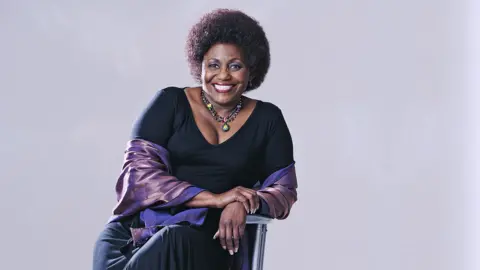Julius Malema, a prominent South African politician, made waves despite his absence from the Oval Office during a meeting today between U.S. President Donald Trump and South African President Cyril Ramaphosa. A video featuring apartheid-era chants associated with Malema was prominently displayed during this diplomatic encounter, which underscored tensions surrounding accusations of racial violence in South Africa.
At 44 years old, Malema is the fiery leader of the Economic Freedom Fighters (EFF), a party advocating policies for the reclamation of white-owned land by Black citizens. Although the EFF has consistently garnered less than 10% of electoral support, Malema's influence remains significant. In response to the White House meeting, he took to social media platform X to deride the discussions as mere "gossip" among older men and dismissed the notion of “white genocide” as lacking substantial evidence.
Malema ignited controversy in 2023 during a politically charged rally by leading chants of “Kill the Boer,” which target Afrikaans-speaking farmers, descendants of European settlers who helmed the apartheid regime. This background has cemented Malema's image as a divisive figure on the South African political landscape.
The diplomatic exchanges continue to reflect a complex narrative concerning race and land reform in South Africa, placing Malema at the center of ongoing international scrutiny.



















